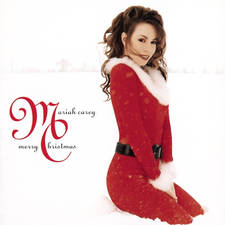Cambridgeshire: Trains Fares Rise
2 January 2012, 08:00 | Updated: 2 January 2012, 08:57
Rail passengers on Cambridgeshire's trains face higher fares on many routes from today - with above inflation hikes of up to 6% on average.
It means many of us will be paying almost 10 times more for their season tickets than in Europe.
From today (Jan 2), UK regulated fares, which include season tickets, are rising by an average of 6%, with the overall average rise for all tickets being 5.9%.
The Government had planned to increase the annual price rise formula by 2% in January 2012, which would have meant regulated fares rising 8%.
Chancellor George Osborne announced last month that the the rise would be limited to 6%, but the Government still plans annual rises of RPI inflation plus 3% for January 2013 and January 2014.
CBT's public transport campaigner Sophie Allain said: "We knew we had some of the most expensive rail fares in Europe, if not the world, but even we were shocked by how much more the UK ticket was in comparison to our European counterparts.
When the cost of season tickets is so much higher than other European capitals, the Government's fare rises are starting to affect the UK's competitiveness. That's why if the Government is serious about promoting economic growth it must also look at reducing planned fare rises in 2013 and 2014 as part of a policy to cut fares and make public transport truly affordable.''
With UK train companies allowed to put up regulated fares by more than 6% as long as the average figure is not exceeded, some season tickets are going up by around 7% next week.
PETERBOROUGH to London rises from £5,320 to £5,620 (that's in increase 5.63%)
CAMBRIDGE to London rises from £4,000 to £4,240 (an increase of 6%)
Bus and Tube fares in London will also be rising on January 2.
The average rise has been kept down to 5.6% thanks to an addition £136m of Government funding.
But the increase is still above the inflation rate and comes at a time when Londoners have to contend with constant weekend disruption to services due to planned improvement work.
The Government, the Association of Train Operating Companies and London mayor Boris Johnson have insisted that the fare rises are necessary to continue much-needed investment in main line rail and Tube services.
In London, work continues on the massive cross-capital Crossrail project as well as the Thameslink scheme.
Both involve considerable changes to busy stations and, inevitably, disruption to passengers. Blackfriars Tube station has been shut since March 2009 and will finally reopen at the end of February.
The Government is determined that farepayers, rather than taxpayers, bear more of the cost of the railways, which suggests that high fares are set to continue in the short term.
Tomorrow (Jan 3) - the first working day on which the new fares will be in operation - the CBT will join transport union TSSA in a "fair fares'' protest at St Pancras station in London.
Bob Crow, general secretary of transport union the RMT, said: "Here's more proof that UK passengers are getting robbed blind by a combination of train operator greed and Government incompetence that leaves the public paying through the nose for fragmented and overcrowded services.''
